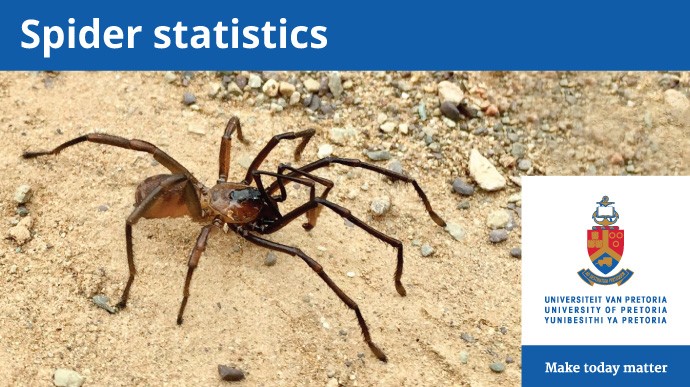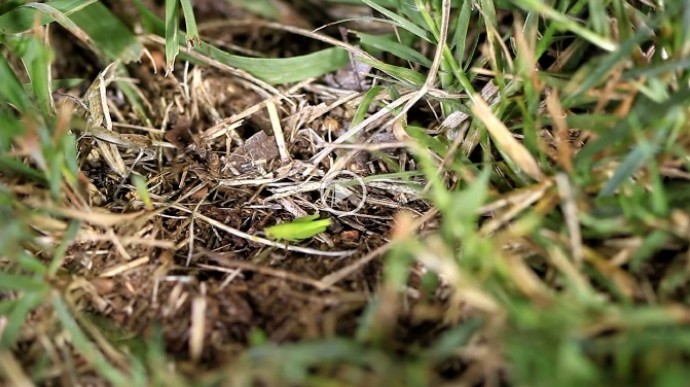Welcome to Research Matters. This curated site highlights some of the University of Pretoria’s most impactful and innovative research which addresses some of our society’s most pressing concerns so that we can transform lives and communities. We are rated as the number one university in South Africa for research outputs. Our vision is to be a leading research-intensive university in Africa that is recognised internationally for its quality, relevance and impact. We develop people, create knowledge and strive to make a difference locally and internationally.
 Story
Story
Nine new trapdoor spider species have been discovered in the Great Karoo by researchers at the University of Pretoria’s (UP) Department of Zoology and Entomology, and the Agricultural Research Council (ARC).
 Infographic
Infographic
Trapdoor spiders hide in underground burrows that are covered with a cork-like lid made of soil, silk and plants. Learn more about trapdoor spiders with this infographic.
 Video
Video
Watch carefully to see how a trapdoor spider catches its prey through its trapdoor.
 Gallery
Gallery
The aim of the Karoo BioGap study was to better understand the interconnected ecosystems and sensitive habitats of the notoriously under-surveyed arid region. The endeavour led to the description of various new species of trapdoor spiders. Have a look at some pictures from the field here.
 Story
Story
In a study that signals potential reproductive and health complications in humans, now and for future generations, researchers at the University of Pretoria and Canada’s McGill University and Université Laval have concluded that toxins in the environment, notably DDT, modify the sperm epigenome at sites potentially transmitted to the embryo at conception.
 Story
Story
Scientists at the University of Pretoria (UP) are leading a study of natural hydrogen gas discovered under the Earth’s surface in Mpumalanga – a source of renewable energy that could contribute to the national energy budget and help address the energy shortage in South Africa.
Copyright © University of Pretoria 2024. All rights reserved.
Get Social With Us
Download the UP Mobile App